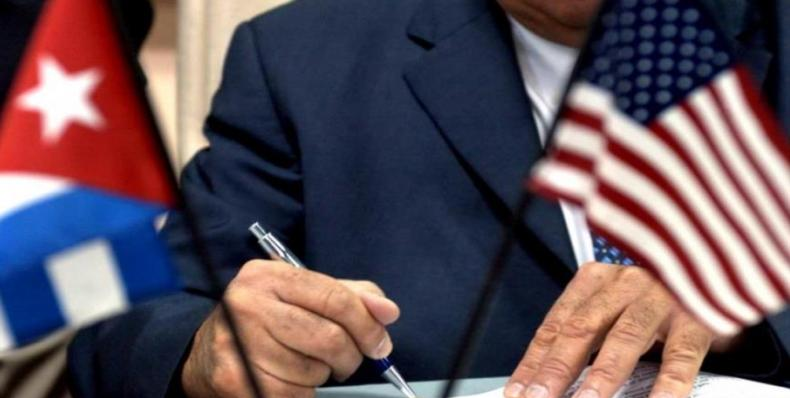
The Fourth Agricultural Conference between Cuba and the United States was held in Havana
By María Josefina Arce.
The Fourth Agricultural Conference between Cuba and the United States, which was held in Havana these days, evidenced the mutual interest in continuing to work to strengthen bilateral trade links for the benefit of both countries.
The meeting was attended by more than a dozen U.S. businessmen and farmers from different states belonging to the U.S.-Cuba Agricultural Coalition, which over the years has defended trade links with the Caribbean nation.
Since its creation in 2015, the Coalition has rejected the economic, commercial, and financial blockade imposed by its country on the island nation, which, it points out, also affects the interests of U.S. businessmen.
The agricultural and livestock organizations and companies that make up the Coalition have denounced that although many countries have made progress in their relations with Havana, they still face onerous restrictions.
A normal relationship, they stress, would give a boost to the sector and would mean the creation of thousands of agricultural jobs in the United States, which would favor the U.S. economy.
For Cuba, it would mean a lower expenditure in food purchases, given that, at present, the country must purchase supplies in distant markets, which makes those imports more expensive, thus affecting the population.
Although in 2000 Washington announced an exception to the blockade, allowing the sale of food, it still denies credits to Havana, forcing the Cuban government to pay in cash for the products it buys from U.S. farmers.
The Coalition has sent letters to President Joe Biden requesting the lifting of sanctions against the Caribbean nation. Let us remember that during his electoral campaign he promised a change in policy towards the Cuban people, however, two years after he arrives at the White House, this unilateral and genocidal measure is still intact.
Now, this meeting has been another opportunity for U.S. businessmen to know firsthand the work of the new actors in the economy of the Caribbean nation, an experience that is gaining ground. There are currently more than seven thousand micro, small, and medium-sized enterprises in the country.
They were also able to see local development projects and the measures adopted by the Cuban government to encourage food production, a priority of the authorities working for the food security of the population.
The most diverse criteria at all levels were taken into account for the elaboration of the provisions, which respond to problems associated with structural, organizational, and productive issues of land use and tenure, as well as financial issues.
The U.S. businessmen emphasized that the Caribbean country is providing greater trade opportunities, thanks to the process of socioeconomic transformations undertaken.
There is great potential for exchange and cooperation between the two countries, which is not only limited to access to seeds and technologies, in which U.S. producers have experience but also to the possibility of exporting Cuban productions or making joint investments. This would be a great step forward in bringing these two people closer.

